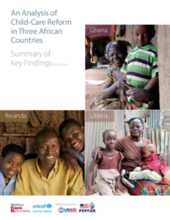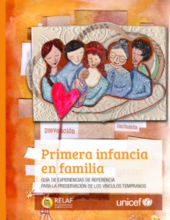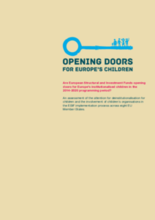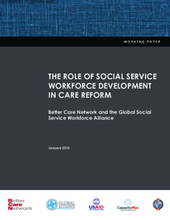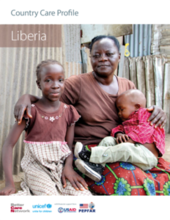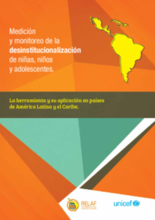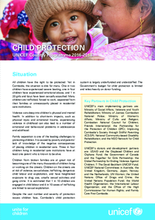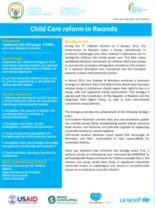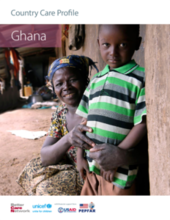Displaying 651 - 660 of 1028
This report summarizes the care-reform process of three sub-Saharan African countries – Ghana, Liberia and Rwanda.
Esta Guía reúne una serie de programas, prácticas y políticas públicas que resultaron en la garantía del derecho a la convivencia familiar y comunitaria de niñas y niños en su primera infancia. En particular, se caracterizan por ser innovadoras o por haber obtenido buenos resultados en la protección y la restitución de este derecho. Las experiencias recopiladas abarcan programas, proyectos e iniciativas públicas, privadas o mixtas de fortalecimiento familiar, provisión de cuidados alternativos, y de reintegración familiar.
This report is based on the outcomes of a survey addressed to eight National Coordinators of the Opening Doors campaign. It aims to assess the extent to which EU Member States have used ESIF to catalyse child care systems reform.
This working paper, produced by the Better Care Network and the Global Social Service Workforce Alliance, explores the topic of social service workforce strengthening as it relates to child care reform.
This country care profile provides an overview of key lessons learned in the children’s care reform process in Liberia, including successes, challenges and areas for progress, and gaps in learning and best practice.
El objetivo del estudio es presentar el proceso de construcción de una herramienta para medir la institucionalización en forma rápida, a partir de información existente en los países y mostrar los principales datos que se obtuvieron.
These virtual study visit resources from Lumos have been developed for those professionals and policy makers who are involved in the transition from institutional to community and family-based care.
This document serves as a brief of the UNICEF Child Protection Programme provided in Cambodia.
This overview document provides a brief update on child care reform in Rwanda.
This country care profile provides an overview of key lessons learned in the children’s care reform process in Ghana, including successes, challenges and areas for progress, and gaps in learning and best practice.

